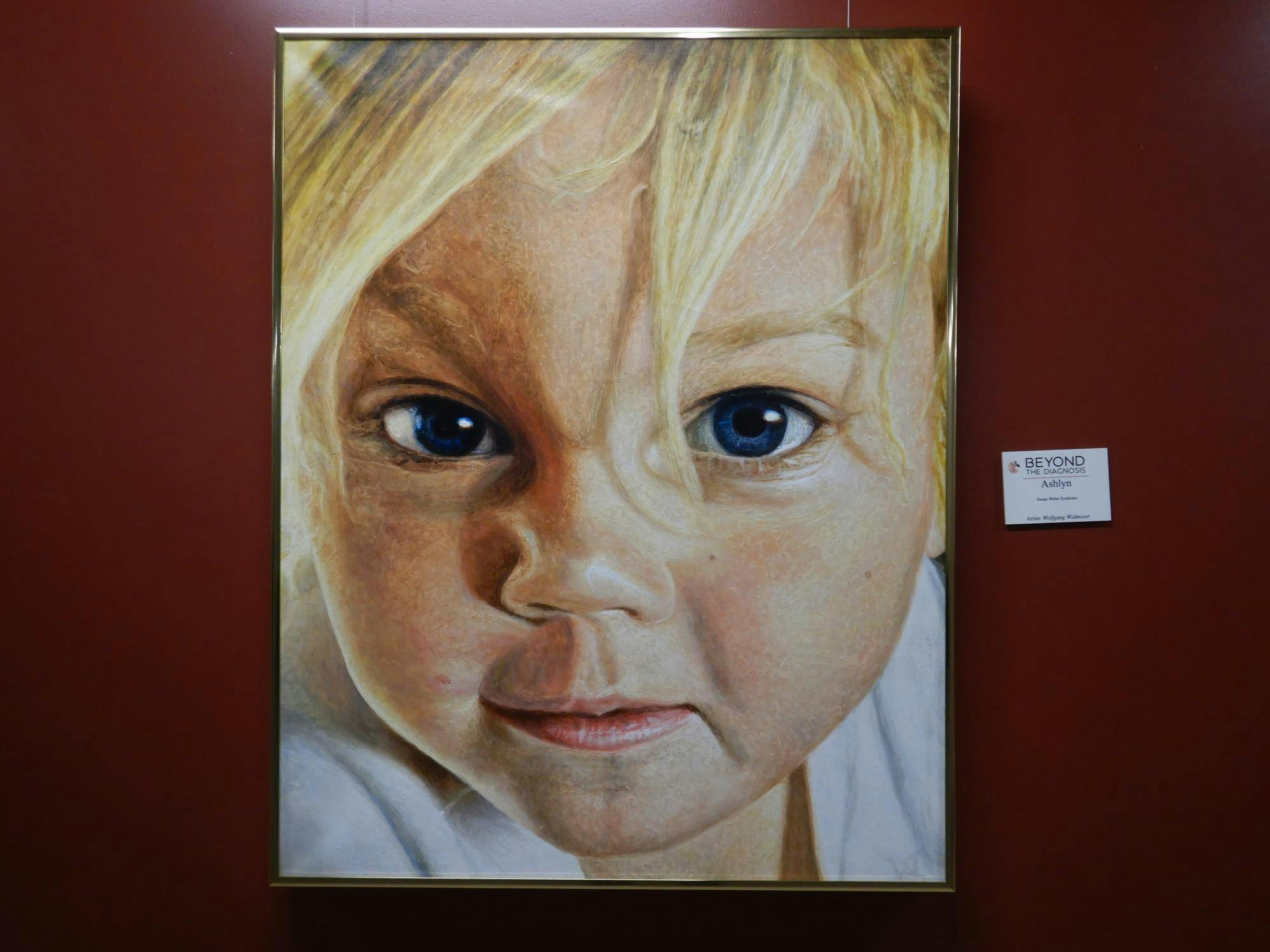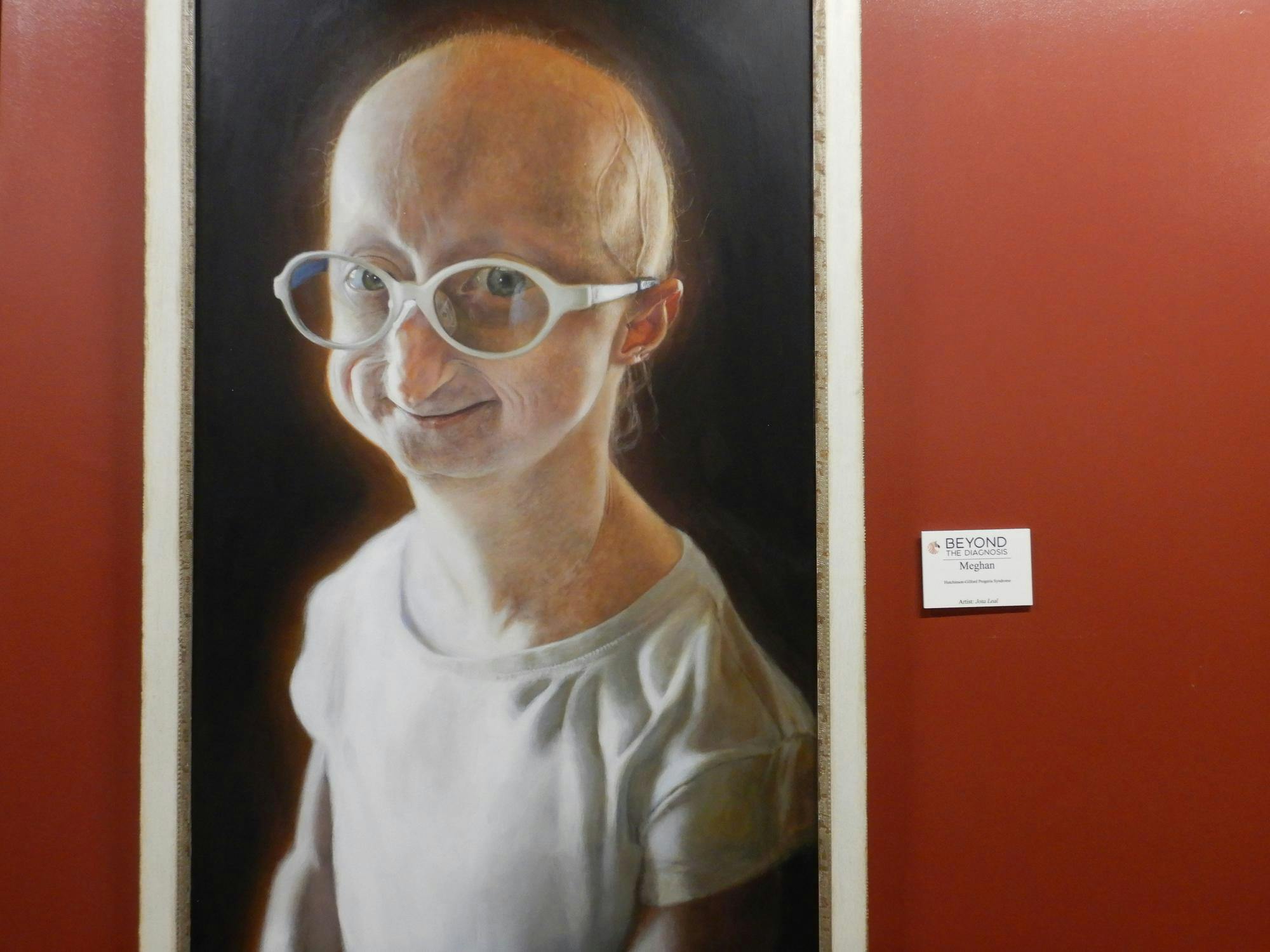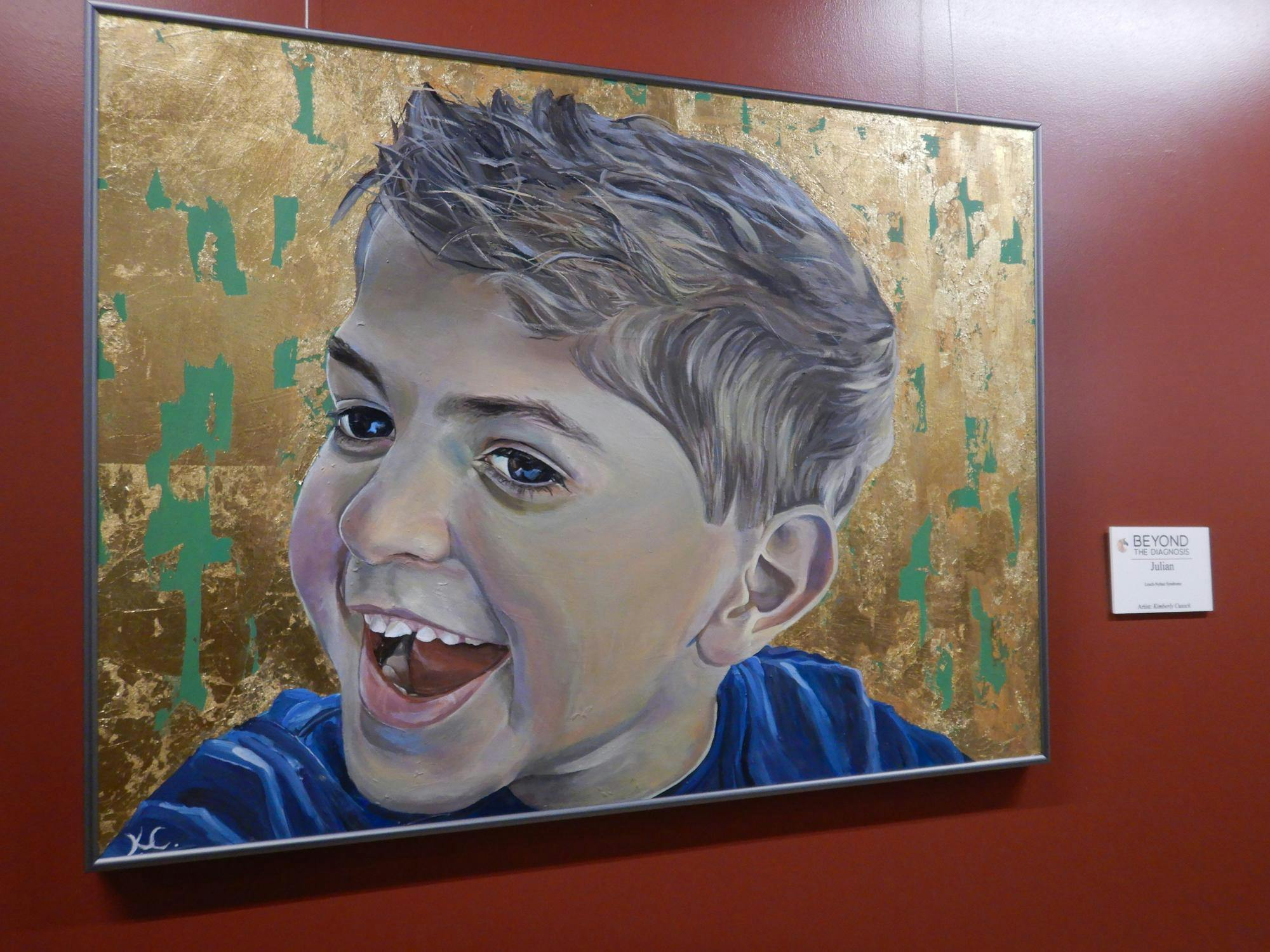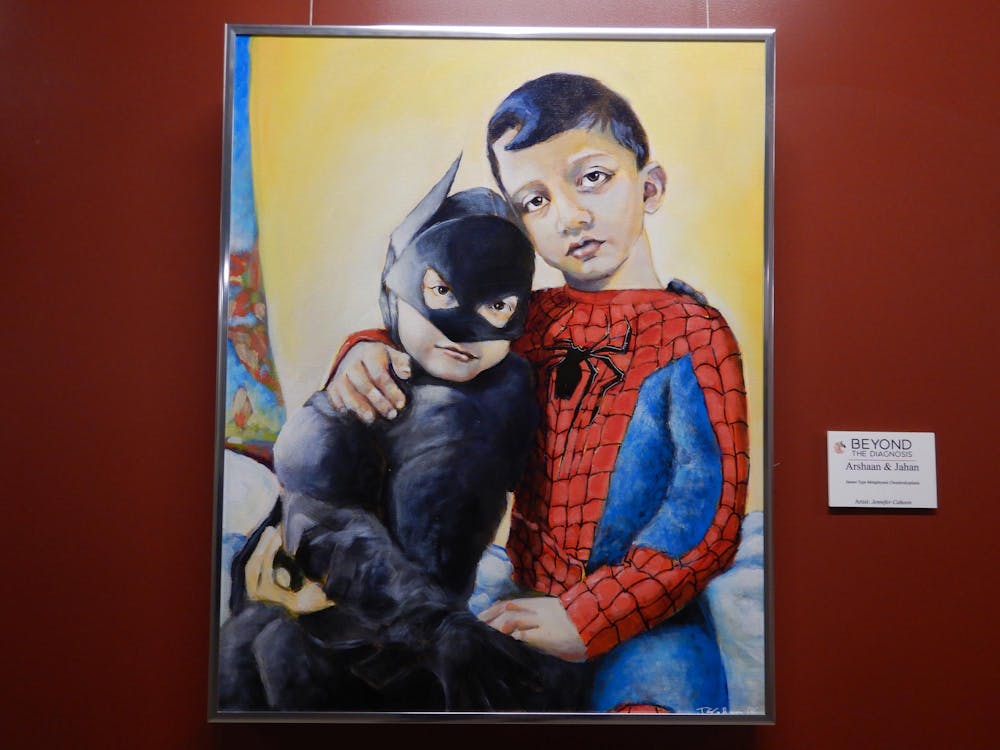Founded by Rhode Island local Patricia Weltin, “Beyond the Diagnosis” is an eclectic exhibit of artworks. After first being displayed at the Warren Alpert Medical School in 2015, the exhibit has returned in time for Rare Disease Day thanks to the efforts of Elyse Sauber ’20 MD ’26 and Assistant Dean of Biomedical Communications Kris Cambra.
The series of paintings, each titled after a child with a particular rare disease, is a captivating reminder of the beauty and uniqueness of each person diagnosed.

The personal connections to real families in every portrait motivated Sauber to bring the series back to Brown, she said. “I was inspired by its dedication to promoting compassion, raising awareness and driving action within the medical community,” Sauber wrote in an email to The Herald.
Sauber’s own journey studying rare diseases began long before medical school. Diagnosed with Marfan syndrome as a baby, she found that her interactions with many different doctors immensely shaped her experience of the disease.
“Some looked me in the eye and asked me about the new Dragon Tales episode before clearly explaining what was going on with my body. Others made me feel more like a specimen,” Sauber wrote. “These specific moments of communication had a real impact on my self-perception and understanding of my condition.”
That awareness of the importance of patient-centered communication was a critical element of the exhibit. “As a medical student, I feel lucky that I had the unique perspective of being a patient before learning to be a provider,” Sauber wrote. For her, art can serve as “a bridge between science and humanity.”
Rare Disease Day is celebrated on the rarest day of the year — Feb. 29. But, since debuting at Brown, Beyond the Diagnosis is not quite so rare anymore, having reached an estimated 12 million people, according to Sauber.

As Cambra described it, the paintings show children first, not patients whose lives are shaped solely by a disease. Beyond the Diagnosis highlights the stories behind each child profiled, forming a community. “I’ve talked to families that have never met anyone else with the disease their child has,” said Cambra. Some diseases featured are so rare they’re unnamed.
“Things like Beyond the Diagnosis, which encompass all rare diseases, are so important,” Cambra said. “You find one another all in this realm of the rare disease world, even if you don't have the exact same diagnosis.” Her son, Truman, who has Williams syndrome, is featured among the paintings displayed.
For Cambra, it was a natural decision to partner with Beyond the Diagnosis in 2015. “The ethos of the medical school is a true belief in the relationship between healthcare and the liberal arts,” Cambra said. “This is who we are.”
Artists for Beyond the Diagnosis can join and create pieces for free, with the aim of putting faces to all 7,000 known rare diseases, according to the organization’s mission.
Art plays a powerful role in the medical school itself, inspiring students to make a difference after Brown. Students pass the paintings on the way to lectures and labs, pausing to glance at the children on the way to the lecture hall.

“My hope is that this exposure fosters empathy and understanding and inspires students to address not only the physical aspects but also the emotional and social dimensions of illness,” Sauber wrote.
According to Cambra, Warren Alpert has hosted regular art exhibits for several years now. Multimedia displays from around the world are housed in the medical school’s main building, featuring themes on the intersection between medicine, science and art. Whether it was the portfolio of a toxicologist who photographed poisonous plants and described their scientific properties, or a photo series of autistic patients at Bradley Hospital, Cambra believes these exhibits “bring communities into the medical school and really support them.”
To Sauber, community and passion are the reasons to pursue medicine at Brown. “I think that most successful doctors begin training with a deep-seated ‘reason’ that propels them through the often grueling process” of medical school, she said.
Uchechukwu Onwunaka ’19 MPA ’20 MD ’24, who intends to pursue emergency and social medicine, agreed that a patient-centric practice is both grounding and inspiring. “While it’s easy to depersonalize what we study at school, projects like these humanize the patient experience in a powerful way,” she said.

Ranjana “Jaanu” Ramesh is a Bruno Brief-er, photographer and Senior Staff Writer covering science & research. She loves service, empathetic medicine and working with kids. When not writing or studying comp neuro, Jaanu is outside, reading, skiing, or observing Providence wildlife (ie: squirrels).





